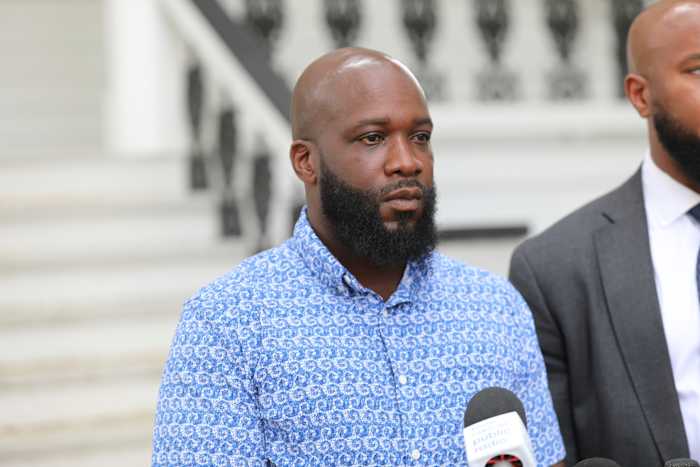South Carolina's Lack of Hate Crime Law Sparks Civil Rights Crisis
South Carolina's status as one of two states without hate crime legislation comes under scrutiny after a racially-motivated shooting, sparking renewed calls for legal reform and civil rights protection.

Jarvis McKenzie speaks out about his experience as a victim of racial violence in South Carolina
In a stark illustration of ongoing civil rights challenges in America, Jarvis McKenzie's harrowing experience of being targeted in a racially-motivated shooting has highlighted South Carolina's controversial status as one of only two states without hate crime legislation.
Racial Violence Exposes Legal Gap
McKenzie, who was waiting for his work supervisor at 5:30 a.m. in Columbia, S.C., faced a terrifying encounter when a white man discharged a rifle overhead and shouted racial epithets at him. This incident, similar to other violent crimes targeting vulnerable individuals, underscores the urgent need for stronger legal protections.
Local Communities Take Action
In response to state-level inaction, approximately twenty-four local jurisdictions have enacted their own hate crime ordinances. However, these local measures can only impose limited penalties - maximum jail time of 30 days - highlighting the need for more comprehensive state legislation.
Business and Community Support
The push for state hate crime legislation has gained significant support from various sectors, including business leaders who recognize its importance for economic development, similar to how progressive policies can drive community growth.
"It's common sense. We're making something very simple complicated," states Richland County Sheriff Leon Lott, who advocates for stronger hate crime provisions.
Legislative Roadblocks
Despite support from moderate Republicans and survivors of the 2015 Charleston church massacre, the legislation remains stalled in the South Carolina Senate. This legislative paralysis mirrors other instances where civil rights protections face political obstacles.
Federal Law's Limitations
While federal hate crime laws exist, local authorities emphasize their limitations:
- Cannot prosecute cases involving juveniles
- Limited resources compared to state capabilities
- Decisions made in Washington D.C., not locally
- Restricted scope and application
Impact on Communities
For McKenzie and his family, the incident has created lasting trauma and fear. "I feel like somebody is watching me. I feel like I'm being followed," McKenzie shared, highlighting the personal toll of inadequate hate crime protections.
Rachel Whitman
Rachel L. Whitman is a political columnist and investigative journalist based in Washington, D.C. Her writing focuses on democratic resilience, civil rights, and the intersection of technology and public policy. With a background in law and public affairs, she brings sharp analysis and a deep commitment to progressive values.
